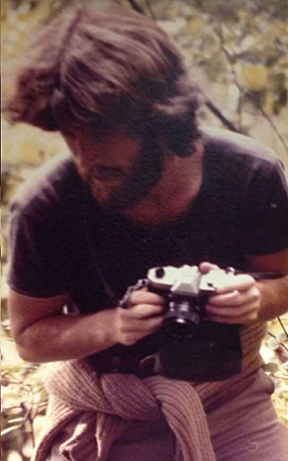Bay Dreaming by Donald Moriarty O’Leary
How on earth did someone not that far in age from me manage to pack this much into one lifetime? And have the presence of mind, as a young person, to write down notes that would refresh not just the place and time, people and events, but meals, conversations, moods, bus rides, music?
 In February, 2022, we reviewed Donald O’Leary’s “Son of a Nun” by the same author in this column. It followed the adventures of the writer, and, as that column shared, we had, 2 years before that reviewed O’Leary’s first installment of his memoirs. It was written by native Syracusan Donald O’Leary, and focused on his adventures around 1976, when, a vagabond in the oldest sense of the word, he wandered from place to place around the many nations and places in the world. A true son of the Age of Aquarius, he was committed to the adventure of being young, free, and willing to explore.
In February, 2022, we reviewed Donald O’Leary’s “Son of a Nun” by the same author in this column. It followed the adventures of the writer, and, as that column shared, we had, 2 years before that reviewed O’Leary’s first installment of his memoirs. It was written by native Syracusan Donald O’Leary, and focused on his adventures around 1976, when, a vagabond in the oldest sense of the word, he wandered from place to place around the many nations and places in the world. A true son of the Age of Aquarius, he was committed to the adventure of being young, free, and willing to explore.
This story, also a memoir, bookends that time period, and tells the tale of the scamp, scholar and son of an (almost) nun who grew up to be that wanderer and observer, then wraps around to the years following his Great Adventure as he pursues grown-up life, always with a need to roam. And, sprinkled throughout the pages, are memories and tributes to the author’s mother, whom he credits for the good in the person he grew up to be.
In this third book, O’Leary, picks up where his previous book left off, with his mom and her tragic death. He explores life in California, and his trips around that state, taking off on adventures to Lake Tahoe, and Mexico. Eventually, along with friends he encounters along the trip, he sets off for the far east – Hong Kong, Malaysia, Singapore, Indonesia, the Philippines, and in Northern Thailand, trekking near the Burma border – where he shares a story that reminded me in some ways of the marvelous film, “Return to Paradise,” but without the disastrous ending, in that the young adventurers find themselves in trouble more than once (a card-sharking misadventure, for example) sprung from the naivete and innocence of self-assured youth. Heading back west, he stops in Europe, ventures to Alaska, and finally returns to architecture school in the US, where during his first year he managed to squeeze in some camera work at the Lake Placid Empire State Winter Games for the new cable TV in Syracuse in 1983, with Syracuse notable Abby Lazar. At the same time, O’Leary shares with us his willingness to make new friends, share a meal or a drink, engage in conversations with people from little children to the elderly, and enjoy a meal of whatever it is that’s being served (in a way far more accommodating that I can ever be while traveling!).
Each of O’Leary’s three installments has introduced us to another element of a life widely (and wildly?) lived. In this, he has captured the essence of the young people of the 70s: adventurous, bold, curious, and aware of themselves as part of a world culture, and eager to sample it. Thanks to such influences as The Beatles, perhaps, young adults of that era were especially eager to learn more about this very part of that broader world that many enlightenment – and experience-seeking youth had heard so much about.
In fact, the writer has taken the opportunity in life, as recorded in this series of memoirs, to meet, talk to, break bread with and create memories with, a wide and fascinating range of personalities, and to explore a jealousy-inducing number of iconic locations. But while such adventures as “Yohimbe/Yosemite” sound like something right out of 70s counter-culture ballad (camping, meeting up with strangers and ending up fleeing for your life as an earthquake hits), and as resident of San Francisco in this turbulent and magical time he enjoys concerts and clubbing along with the era’s big names, it wasn’t all “hearts and flowers.” Tragedy strikes in life, and this story doesn’t avoid its share. When his former love, Ulla, ends her own life, the shock and sorrow are just as palpable on the pages as his love of food, talk, and exploration.
O’Leary doesn’t romanticize too much about the places or people, though he does admire much about the sunsets, tropical beaches and local fruits and foods. He shares the stories of the bandits as well as the loving Mamas, the beautiful young charmers and the cramped and dusty busses. What he does provide for the reader is what only someone who has been to these places, seen these sights, and talked to these people at a certain age can provide: a candid, wide-eyed, and appreciative glimpse into the wider world – East Asian, European, Canadian and Mexican-style!











